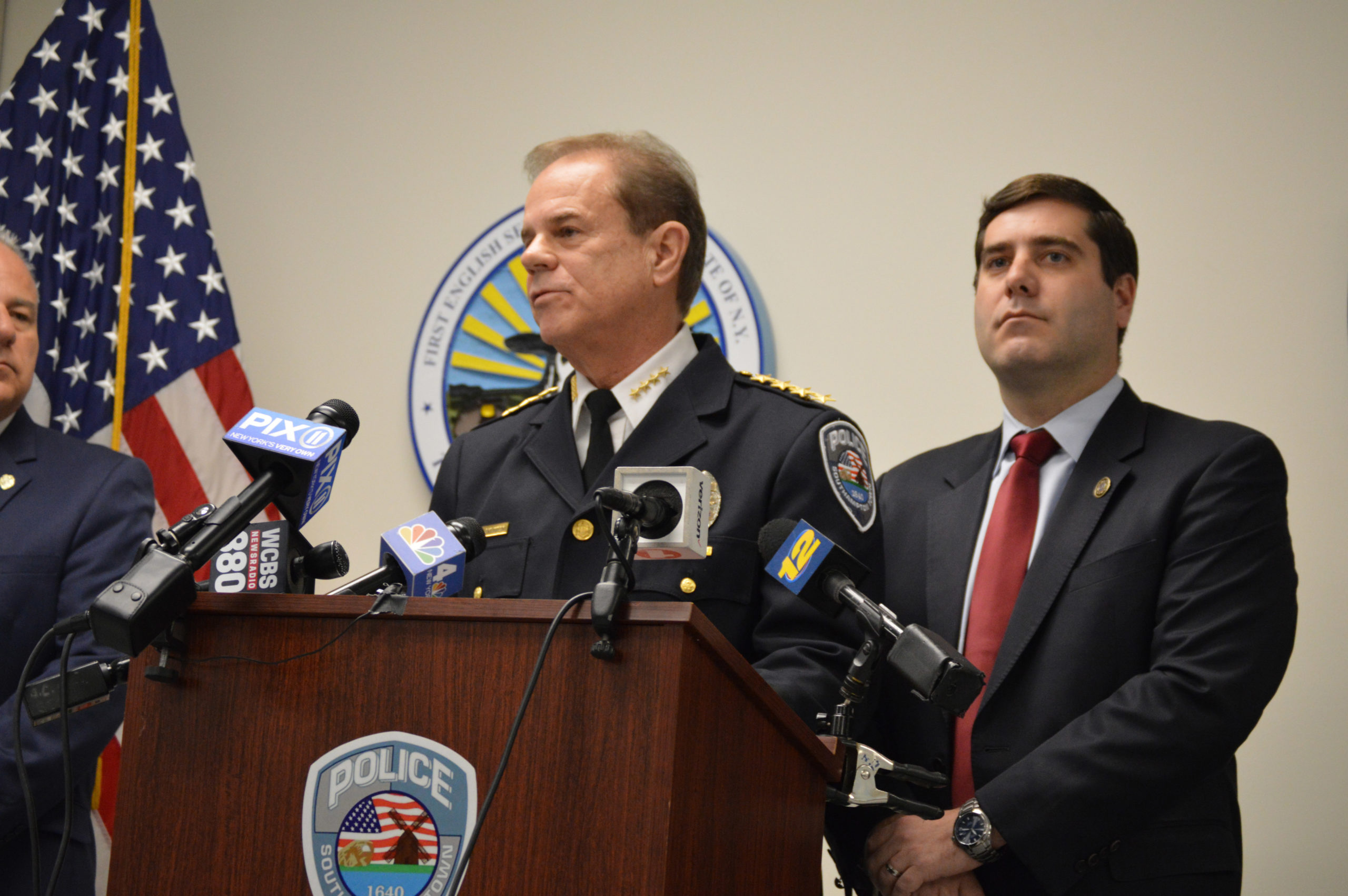Southampton, East Hampton Police Chiefs On New Reforms

Reacting to the historic reforms regarding policing in the State of New York, which were signed into law by Governor Andrew Cuomo in recent days, the chiefs of both the Southampton and East Hampton Town police departments feel confident they are already meeting many of the required changes.
Chief Michael Sarlo of the East Hampton Town police spoke extensively on the subject in an email this week. “Our agency has always been on the forefront of engaging the community and listening to their concerns, and sharing information regarding our training and protocols in an effort to build better trust and understanding between our officers and the citizens we serve.”
Chief Steven Skrynecki of Southampton said on Monday that he believes that his department “is very much in line with the issues that are of concern right now.” He said that the “deficiencies” in protocol and policy in departments across the country, in which an officer’s actions while trying to make an arrest have led to the death of an unarmed African-American defendant, have been and are being addressed in his department. He added that he believes this to be true of the departments across the East End.
There have been multiple demonstrations across the East End since the death of George Floyd, who died while in police custody in Minneapolis last month, all of which have been peaceful, and all of which have been marked by cooperation between the police and the protestors.
Chief Sarlo pointed to recent reforms in his department. “We jumped in with the Suffolk County Police Department and required all of our patrol officers to attend Bias Free Policing training back in 2015 and 2016,” Sarlo said, adding that all new recruits since then have gotten this training during their time at the Police Academy in Brentwood.
Chief Skrynecki pointed to his department’s cooperation and involvement with the town’s Anti-Bias Committee, as well as with citizens’ groups across the town. “I think we are ahead of the curve. I think we are very pro-community policing. We take great pride in being a community police organization. We believe that if we don’t have community trust, if we don’t have community cooperation, we are failing.”
“We have local representatives of minority communities, the Retreat [which offers domestic violence services on the East End], and local clergy in for meetings with the command staff,” Sarlo said. He said that officers are required to “participate in training sessions in diversity and awareness of law enforcement issues effecting those populations.”
Skrynecki spoke about internal controls and investigations within his department. “Three years ago, when I started here,” Skrynecki said, his department set up a system “that allows us to receive complaints, record and document the complaints in a central data base, investigate those complaints, and maintain a record of officers with an early warning feature. If any officer seems to be outside the curve, seems to be receiving more complaints, or more serious complaints, it alerts us and gives us the opportunity to explore that to see if there is some reason the officer’s behavior is going in the wrong way, and to correct it.”
Sarlo said that “as a part of the reforms, we are all hoping Albany also creates funded training courses, certified by the State or by the Federal Government with which we can ensure officers have opportunities to attend. Most of the use of force reporting, accountability for complaints, and even much of 50-A has already been reformed over the past several years.”
The 50-a law, which has now been repealed, shielded officers’ records from public review.
Both chiefs said they are very confident that their departments will be able to meet all the requirements of the new laws.
Skrynecki said that when Governor Cuomo said words to the effect of “No one trusts the police these days,” he was taken aback. “I find that very disturbing. In fact, I find that offensive. We work very, very hard at establishing community trust. I think we have a high degree of community trust.”
“We have had several marches in the township,” Skrynecki said. He listed those, including demonstrations in Bridgehampton and Hampton Bays. In addition, Southampton Town police have also assisted other departments handling demonstrations such as the Southampton Village, Sag Harbor and Riverhead police. “In each case, we worked with the organizers, as much as we could . . . we worked with them in helping them to design a route. They let us know pretty much what they wanted to do. And we accommodated their wishes, including closing down Montauk Highway a couple of times,” as well as the traffic circle on Route 58 in Riverhead.
Chief Skrynecki pointed to the most recent demonstration in Hampton Bays, in which, he said, demonstrators actually applauded the local police.









